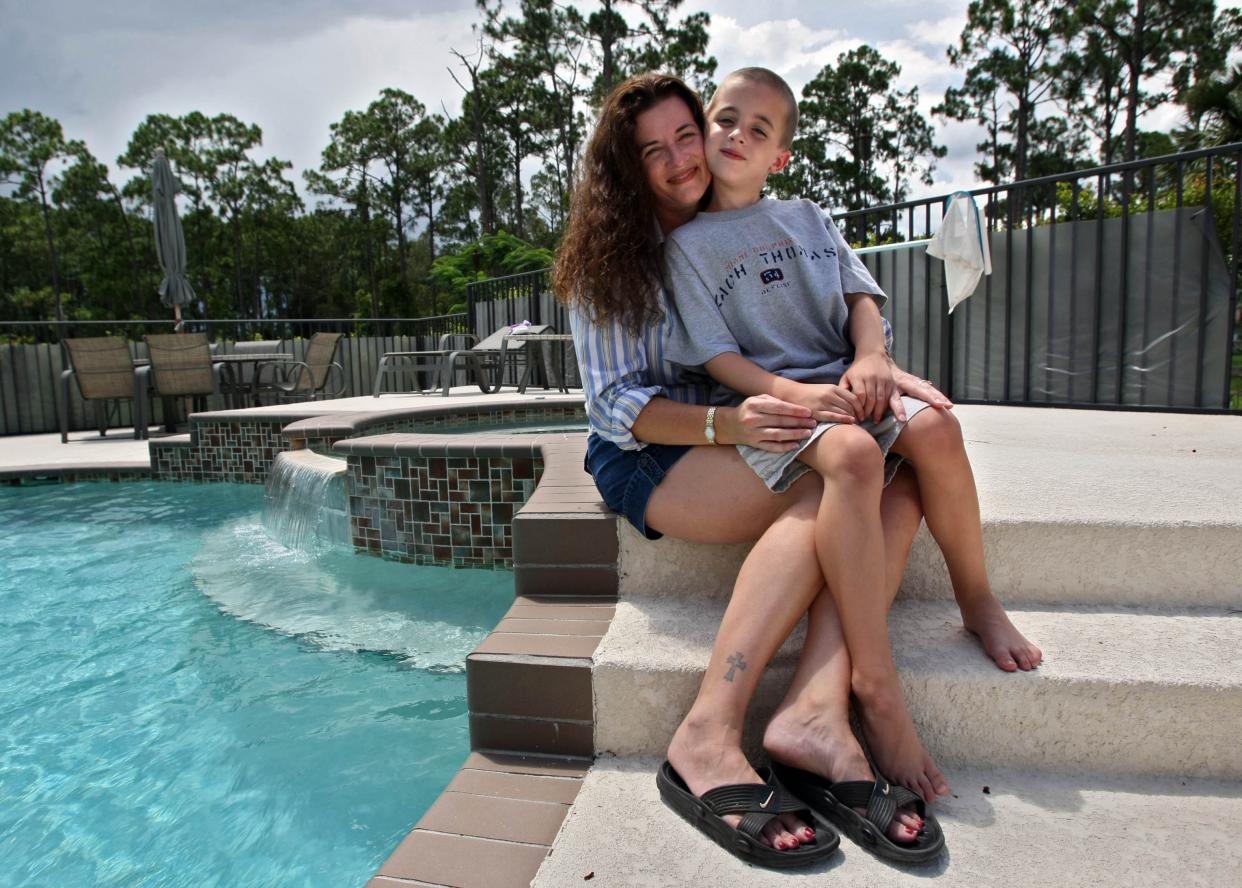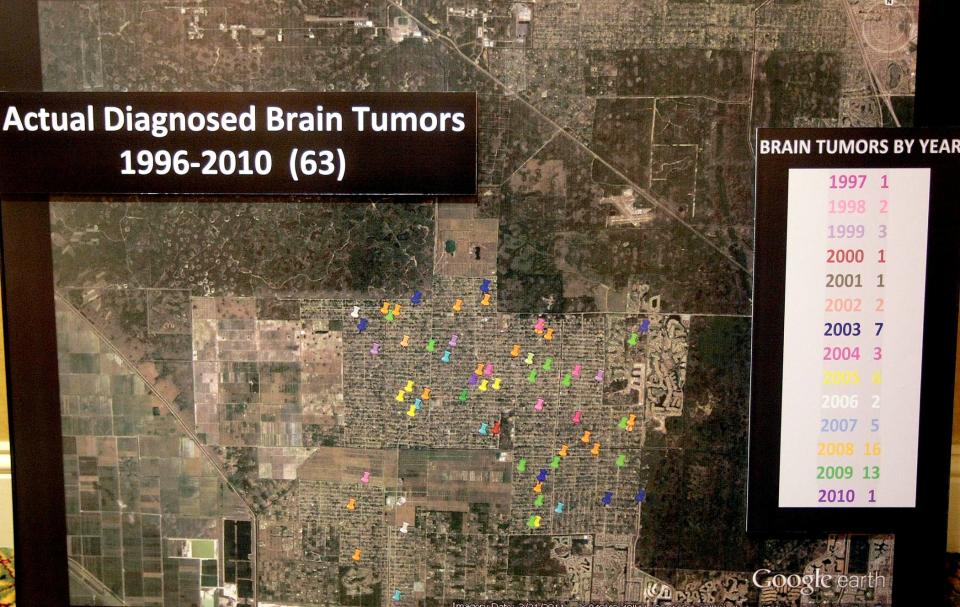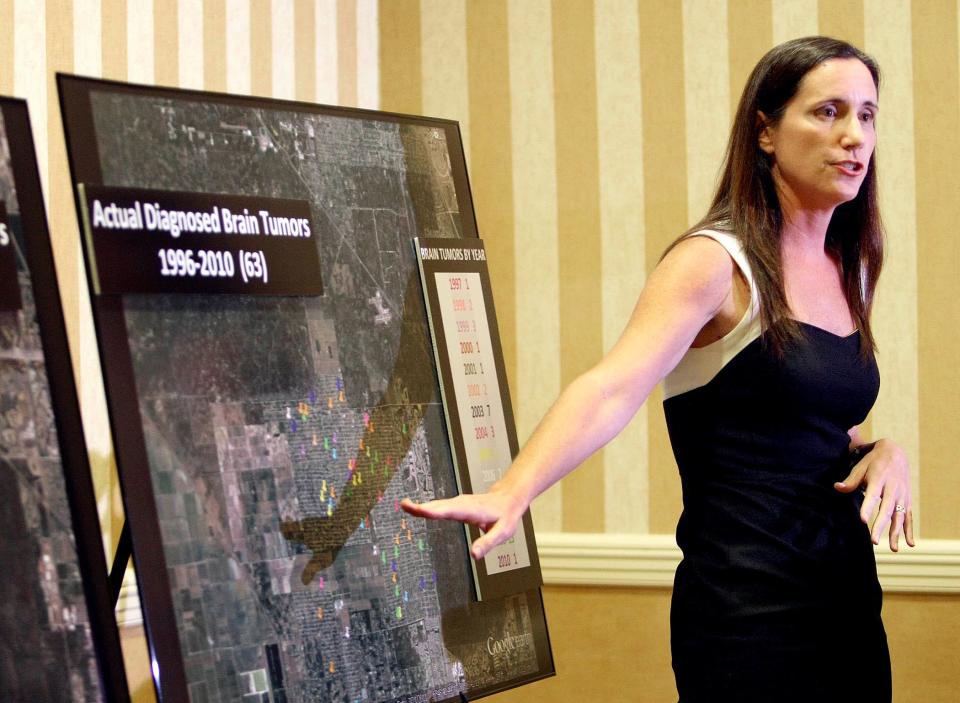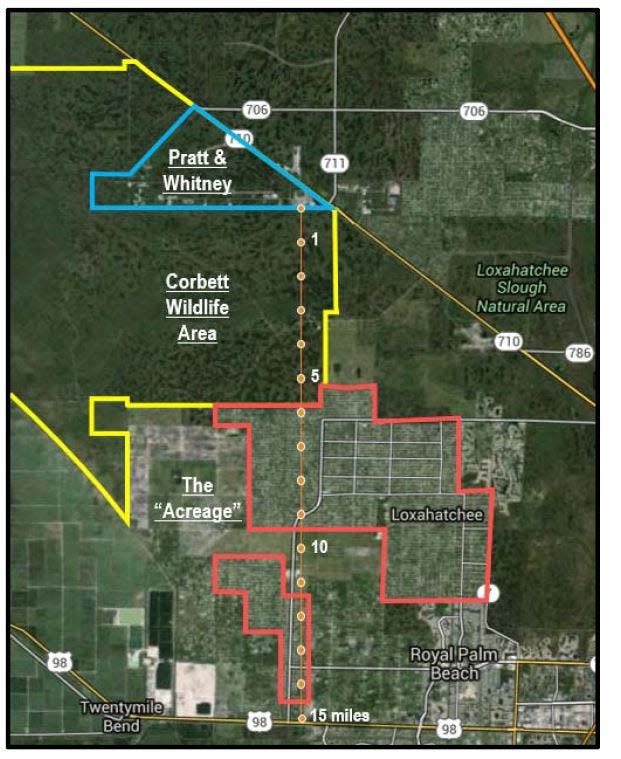Trial opens in Acreage cancer cluster lawsuit, more than 10 years after it was filed

When Jennifer Dunsford, her husband and three children moved into a new house in The Acreage in 2003, they expected it to be their “forever home.”
However, five years later, her youngest son was diagnosed with brain cancer. Soon, Dunsford discovered that three other youngsters in the sprawling rural community in the western reaches of Palm Beach County had recently received similarly grim news.
Convinced something in the water or the soil was making children sick, Dunsford said the family’s dream home quickly turned into a prison.
Public record? Unseal statement by State Attorney Dave Aronberg's ex-wife in Glenn Straub case, newspapers ask judge
Abortion lawsuit: Boynton synagogue fights Florida's abortion limits in religious freedom suit
Corey Jones shooting: Ruling opens door to Corey Jones' family suing Palm Beach Gardens over rights violation in his death
She declared the backyard pool off-limits. Ditto the drinking water, which came from a well. She bought bottled water which her family used for cooking, drinking and even brushing their teeth. Playing outside was prohibited.
“I began to be concerned about the area where I lived,” said Dunsford, who moved to The Acreage from Broward County. “Where did I live? What was around me? I needed to know if living there was the best thing for my family.”
A 2010 report from the Florida Department of Health confirmed her worst fears. It found elevated levels of cancer in children in The Acreage and designated the area as a pediatric brain cancer cluster.
On Wednesday, 12 years after Dunsford asked for the investigation, she told her story to a jury as the first witness in a long-delayed and much-anticipated trial that will determine whether jet engine manufacturer Pratt & Whitney will be blamed for the cancer cluster.
Pratt & Whitney's handling of contaminated soil key part of case
Dunsford, along with other parents whose children were diagnosed with brain cancer, claim the aeronautics giant didn’t properly dispose of radioactive waste that eventually contaminated their community.
Attorney Mara Hatfield, who is representing the parents, including ones who lost children to cancer, told a jury that the evidence against the government contractor is overwhelming.
“The most likely cause – the only cause – is the transportation of Pratt Whitney materials to The Acreage,” she said during opening statements.

As they have since the lawsuit was filed nearly a decade ago, attorneys for Pratt vigorously denied the allegations.
Chicago attorney Sean Gallagher said state regulatory agencies not only cleared Pratt of wrong-doing but also declared that The Acreage “is safe for families to enjoy outdoor activities in their yards.”
As is the case of most cancer-clusters throughout the United States, no cause was ever found. But, he said, state agencies found no evidence either the water or the soil was contaminated.
“The Florida Department of Health and the Florida Department of Environmental Protection did investigate whether any contamination could have conceivably been the cause of cancer, and they found none,” he said.
The anticipated three-week trial got off to a blustery start. Gallagher asked U.S. District Judge Kenneth Marra to declare a mistrial, claiming Hatfield violated a court order by telling the jury about claims that Marra had declared off-limits.
While Marra warned Hatfield, he declined Gallagher's request. He said it was unlikely Hatfield's verbal slip would unduly influence the jury.

Throughout his opening statement, Gallagher emphasized that the allegations Hatfield is making don’t make sense.
Since there is no evidence that contaminated groundwater traveled a distance of 6 to 14 miles to the Acreage from Pratt’s 7,000-acre compound off the Beeline Highway, Hatfield and her legal team will argue that it was carried there by trucks.
Instead of taking dirt that had been soaked with jet fuel to a facility to be cleaned and recycled, Hatfield claims it was sold as fill to people who were building homes on low-lying, flood-prone lots in The Acreage.
But, Gallagher said, only 40 dump trucks were sent to a thermal remediation facility. That amount of dirt wouldn’t be enough to provide fill for one house in the 60-square-mile community.
“You’d need a massive amount of materials, hundreds of thousands of tons of soil,” to contaminate a community of roughly 12,000 homes, Gallagher said.
Trucking manifests and other documents will show that contaminated soil, most of which was shipped out on rail cars to hazardous disposal sites in Michigan and South Carolina, was handled properly, he said.
The bottom line: Did Pratt & Whitney's actions depress property values?
Further, Gallagher said, a University of Florida doctor who specializes in neuro-oncology will testify that the type of brain cancer Acreage children suffered couldn’t have been caused by low-level exposure that would have happened through contaminated soil.
Hatfield countered that medical experts her West Palm Beach firm hired will refute those claims. A doctor will testify that he found evidence of radioactive material in the tissue of a teen who died.

Sadly, she said, the investigation by the state agencies wasn’t thorough. They didn’t investigate Pratt because it’s 6 miles away from the nearest home in The Acreage and as much as 14 miles away from those at the southern end, near Lion Country Safari.
She said she and other lawyers scoured tens of thousands of documents. They asked experts to conduct hundreds of soil and medical tests. They interviewed dozens of people who were involved in Pratt’s cleanup efforts. The evidence, she said, shows Pratt’s carelessness caused children to get sick and die.
While much of the trial will focus on the trauma the families experienced and complex scientific information about the sources, causes and dangers of radiation, the jury won’t be asked to determine if the parents should be compensated for their children’s illnesses and deaths.
Instead, jurors will be asked whether Pratt is responsible for depressing property values in the community. Separate personal injury lawsuits have been filed against Pratt by many of the same parents.
Hatfield didn’t say how much she is seeking. But if the jury agrees that Pratt didn't properly dispose of radioactive materials, she could revive a class-action lawsuit, seeking compensation for the nearly 40,000 people who own property in the rural enclave.
After a five-day hearing in 2018, Marra rejected Hatfield's request to allow all Acreage property owners to be part of the lawsuit. But if she successfully argues that Pratt contaminated The Acreage, she could ask him to reconsider. Millions of dollars could be at stake.
Jane Musgrave covers federal and civil courts and occasionally ventures into criminal trials in state court. Contact her at jmusgrave@pbpost.com.
This article originally appeared on Palm Beach Post: Families argue Pratt & Whitney caused cancer cluster in South Florida

